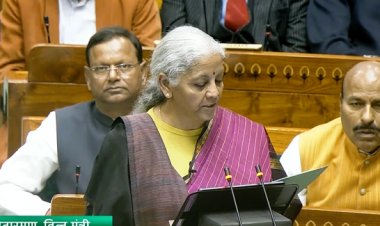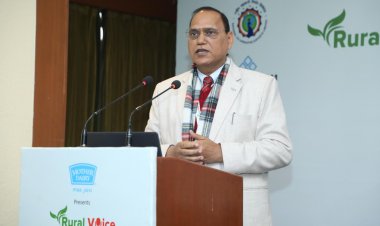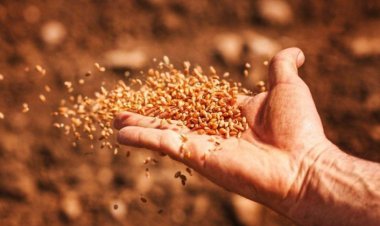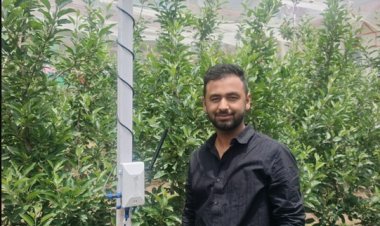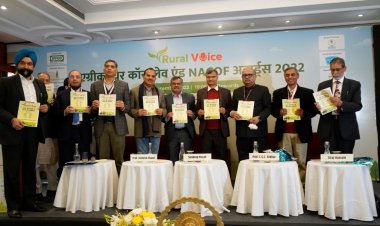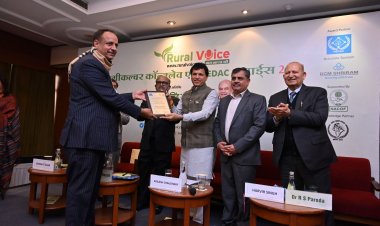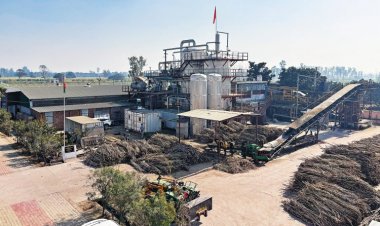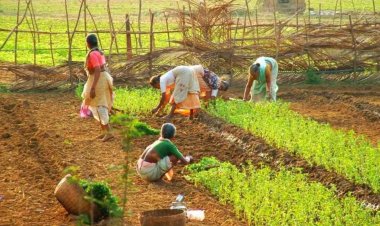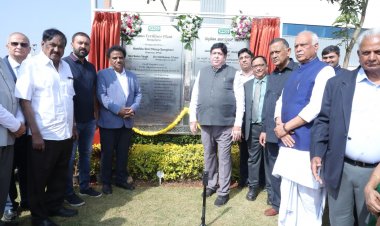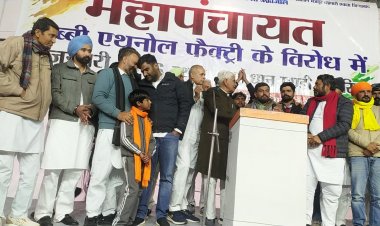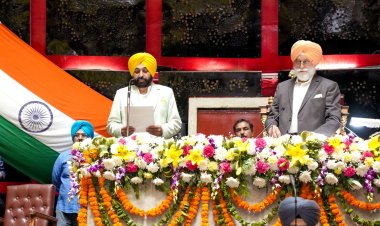Seeking consent from states for trials of genome-edited plants may create hurdles in benefiting from new technology
The process of seeking consent from the states for crop field trials may be implemented if genome-editing technology is used to develop new crop varieties. In a letter written to the states on September 15, 2021, the MoEFCC has sought their opinion in this regard. The DBT has asked for exemption from the GEAC appraisal of field trials for genome-edited plants. But the MoEFCC believes that the proposal for GEAC appraisal should be discussed only after getting consent for field trials from the state concerned. Agriculture scientists say that this step may create hurdles in benefiting from the new technique.

The process of seeking consent from the states for crop field trials may be implemented if genome-editing technology is used to develop new crop varieties. In a letter written to the states on September 15, 2021, the Ministry of Environment, Forest and Climate Change (MoEFCC) has sought their opinion in this regard.
The Department of Biotechnology (DBT) has asked for exemption from the Genetic Engineering Appraisal Committee (GEAC) appraisal of field trials for genome-edited plants. But the MoEFCC believes that the proposal for GEAC appraisal should be discussed only after getting consent for field trials from the state concerned. Hence the letter to the states seeking their opinion. It has also sent the DBT draft guidelines for the safety assessment of genome-edited plants along with the letter. These guidelines say that the SDN1 and SDN2 categories be exempted from GEAC approval.
This letter from the ministry has led to talk of a delay in the process of developing new crop and plant varieties through this new genome-editing technology. Speaking to RuralVoice, a senior agriculture scientist and policy expert said that the country stood to lose if this technology was treated at par with other GM crops. He said that this technology had greatly shortened the process of developing new species. Besides, it is capable of producing accurate results.
The new gene-editing technique is called Clustered Regularly Interspaced Short Palindromic Repeats (CRISPR)/Cas9. The 2020 Nobel Prize for Chemistry was awarded jointly to France’s Emmanuelle Charpentier and the US’s Jennifer Doudna for developing this gene-editing technique. The technique is being used to develop new species through gene editing. Several varieties have been released in the US and France using this technology. Other countries that are using this technology to their benefit include Japan and Australia.
The scientist mentioned above says, “The genes from one plant family is edited in this technique and it is possible to produce a new variety by selecting traits like better productivity, disease resistance and temperature resilience from plants of the same family. Besides, one may benefit from a better-targeted approach through this. In the case of transgenic crops, foreign genes are imported. Therefore, it is inappropriate to put the two on the same plane. Adding the condition of the states’ recommendation for field trials of plants produced from SDN1 and SDN2 implies a delay in the process and the country’s agriculture sector missing out on the benefits from this technique.”
The Indian Council of Agricultural Research (ICAR) has started working on this technology to benefit from it. Besides, after a detailed discussion with the National Academy of Agricultural Sciences (NAAS), the DBT has framed the draft guidelines for the safety assessment of genome-edited plants. An expert committee constituted by the DBT has also reviewed the draft guidelines. Also, the Regulatory Committee on Genetic Manipulation (RCGM) has approved the same. It is after this that the guidelines have been sent for its recommendations to the GEAC, which will review these and then send it to the Ministry for its final approval.
In fact, comprehensive opinion had been sought on the draft guidelines from the departments concerned and the institutes/departments working on agricultural research. It was only then that these guidelines were sent for approval. A meeting of officials from the ministries concerned was also held in this regard recently. In which it was agreed that it was necessary to approve the guidelines and notify them. According to sources, the Director-General (DG) of ICAR was given its presentation as well. The GEAC chairperson had also been called in this meeting but she said, “we have sent our comments.” But on the very next day of the meeting, as mentioned above in this report, a letter was sent to the states in this regard.
The issue seems to be getting stuck after this letter from the environment ministry. A senior agriculture scientist spoke to RuralVoice in this regard, “Gene editing is similar to the plant breeding process. There are no foreign genes involved in SGN1 and SGN2. So, there is no need to place it equivalent to the transgenic process.” This is unlike SGN3, where genes are imported. This process need not, therefore, be placed in the Genetically Modified (GM) crops system. The draft guidelines were prepared after discussions by NAAS, Trust for Advancement in Agricultural Sciences (TAAS) and a host of other related expert institutes, and the Prime Minister has been sent the brief.
Says another agriculture scientist, “It would not be wrong to say that sending a purely scientific issue to the states may be seen as an attempt to derail the process of scientific advancement. This directly implies depriving the farmers and the agriculture sector of the country of its benefits. Given this situation, despite the opportunity provided by the new CRISPR/Cas9 technology and the abundant plant genetic resources available in the country, we shall fail to move ahead with ‘Make in India’. When genome editing through SDN1 and SDN2 is by no means transgenic, how does it become necessary to go for regulatory trials and the states’ consent? Why are policy issues not decided fully on the basis of scientific rationality? How will the target of doubling the farmers’ income be met in absence of a policy environment?”
In March, institutes concerned with agriculture research had prepared a brief. These institutes include TAAS, NAAS, ICAR, Biotech Consortium India Ltd (BCIL), Tata Institute for Genetics and Society (TIGS), National Agri-Food Biotechnology Institute (NABI) and Biotechnology Industry Research Assistance Council (BIRAC). These institutes had held a dialogue on this topic in March and found the technique necessary for the country’s agriculture.



 Join the RuralVoice whatsapp group
Join the RuralVoice whatsapp group


















